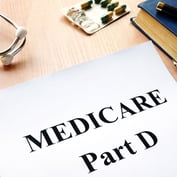Independents may be much more likely to have trouble paying for health care or medicine than Republicans are, and Democrats may have almost as much trouble paying for care.
Dan Witters and other analysts at Gallup, Princeton, N.J., have published data supporting that conclusion in a summary of results from Gallup surveys of 400,000 U.S. adults conducted from Jan. 2, 2011, through March 31, 2012.
The analysts found that Republicans generally reported having an easier time paying for the necessities of life than Democrats or independents reported, and that independents reported having the most problems.
Only 13.9% of the Republicans told pollsters they had struggled to pay for care or medicine, compared with 19.6% of the Democrats and about 21.2% of the independents.








 September 05, 2012 at 09:53 AM
September 05, 2012 at 09:53 AM







